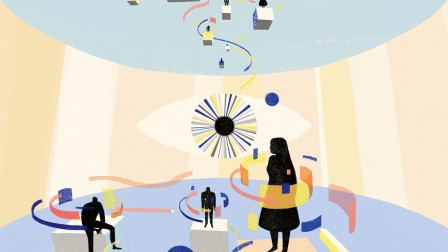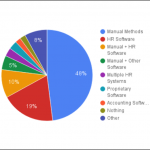How AI Is Changing Human Resources
Making a good impression with a prospective employer often requires little more than a great résumé and congenial personality. But how do you impress an algorithm? That’s the question facing applicants of Facebook, IBM, and a spate of other companies that are starting to incorporate artificial intelligence into their hiring practices. They’re using machines to scan work samples, parse social media posts, and analyze facial expressions on behalf of HR managers. Such practices raise questions about accuracy and privacy, but proponents argue that harnessing AI for hiring could lead to more diverse, empathetic, and dynamic workplaces.
Though traditional personality-assessment techniques, such as the Myers–Briggs test, are designed for objectivity, somewhere along the way “managers still inject personal bias,” says Mark Newman, founder and CEO of HireVue, a recruiting-technology company. That’s where machines can act as a check. HireVue records and analyzes interviews, noting things such as facial expressions and word choice to provide its clients (including Hilton Worldwide and GE) with feedback on a candidate’s levels of engagement, motivation, and empathy. Koru, another human resources software developer, also gauges personal attributes, using a written test to evaluate “impact skills,” such as grit, curiosity, and polish. Koru compares candidates’ results to those of a client’s top staff performers to identify those most likely to excel at the company.
But recruitment isn’t just about discovering the best people—it’s about eliminating the worst. Fama, founded in 2015, uses natural-language processing to conduct automated web searches on a candidate, scanning news coverage, blogs, and even a person’s public social media history for signs of bigotry, violence, sexual content, and illegal drug use. It can also look for indicators of positive attributes, such as volunteering.
Artificial intelligence can even be used to check for skills specific to certain jobs. The year-old company Interviewed, which has worked with clients such as Instacart and IBM, administers “blind auditions” in which applicants for customer-service jobs field chats or calls from bots that represent consumers. It’s now beginning to automate the assessment of what cofounder Chris Bakke describes as “softer skills,” by using computerized analysis to identify speech patterns among, for example, empathetic individuals. An algorithm’s ability to understand something like empathy, Bakke says, points to a new hiring technique—one in which machines assess, but humans make the final call.
A version of this article appeared in the October 2016 issue of Fast Company magazine.
Fast Company , Read Full Story
(24)













